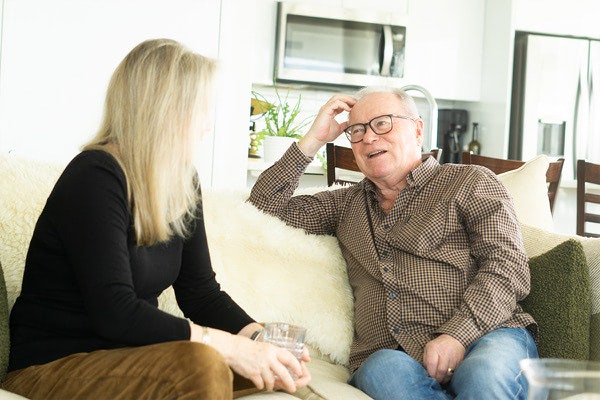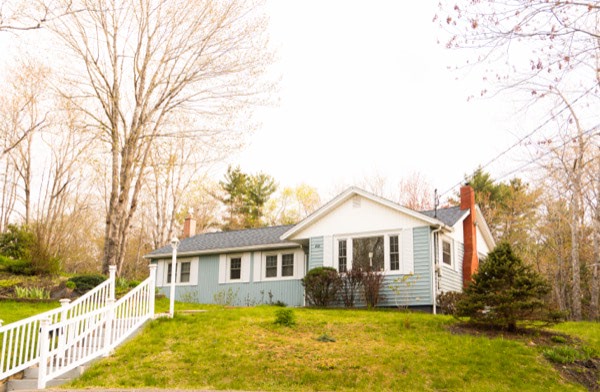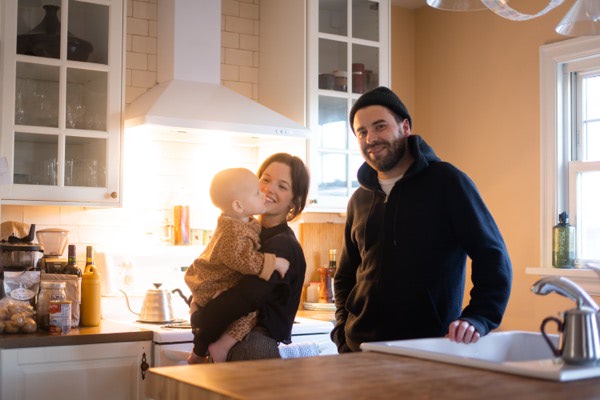Cottage opening weekend is almost here! In this post, we discuss how best to prepare your cottage for summer.

Gifted down payments: What you need to know
You may have heard of gifted down payments. They are becoming increasingly common in the housing market among new home buyers. As housing affordability is still a challenge for many people, gifted down payments are coming into play as a way to help buyers enter the market. If you’re wondering whether a gifted down payment is an option for you, here’s what you need to know!
What are gifted down payments?
A gifted down payment is exactly what it sounds like. A person donates the cash required to another person who is looking to buy a home. As you likely know, buying a house in Canada requires a down payment between five and 20 per cent of the property’s purchase price. No matter how much the property costs, the down payment will be a major upfront expense. A lot of first-time home buyers struggle to enter the market due to this barrier, because saving this much money often takes years. This is where we sometimes see parents step in to cover this initial cost.
Are there rules for who can give and receive them?
Unfortunately, not everyone can give or receive gifted down payments. They must come from an immediate relative, such as a parent, grandparent, or sibling. The donor must also understand that they are providing a gift and not a loan. The donor cannot ask the buyer to pay them back for the down payment. This is so lenders can be sure the borrower does not owe another debt to someone else, on top of their mortgage payments. Lenders emphasize the importance of being the buyer’s top financial priority.
What is required from the donor and home buyer?
Donor’s proof of funds
Of course, lenders will need to know the donor of a gifted down payment can actually provide it. Thankfully, this doesn’t put too much work on the donor. All they have to do is show the lender a bank statement that proves they have money in their account for this gift. Basically, the lender will just want to know they are working with someone who is financially able to support the borrower.
Proof of money transfer
Another important part of the process is tracking the movement of the down payment. Lenders must see the money come out of the donor’s account and go straight into the buyer’s account. Again, bank statements or transaction history will easily prove this. The main reason for this requirement is for the lender to protect themselves from potential money laundering. They need to know the down payment came from the person it was supposed to, and that it is from a legitimate source.
A letter of understanding
Finally, the lender will want the donor to sign a letter to acknowledge their gift, how much money they gave, that they have the finances to support it, and that they understand they will not get this money back. This just puts everything on paper for extra reassurance for the lender. It also makes everyone’s responsibilities very clear, so there won’t be any misunderstandings down the road.
What are the benefits and drawbacks?
There are a few big pros and cons to gifted down payments. Starting with the positive, buyers who receive this gift might be able to enter the market sooner. By skipping the lengthy process of saving for a down payment, buyers can jump right into the house hunting process. This is especially handy during periods of low interest rates or falling housing prices, when people are eager to start shopping. Another big advantage is if this gifted down payment hits that 20 per cent, the buyer will not have to pay for mortgage default insurance. This is an extra cost for home owners with smaller down payments, and one most people like to avoid when possible.
On the flip side, there are a couple of risks associated with gifted down payments. On the donor end, there is the risk of biting off more than you can chew in terms of financial stability. Sometimes, a donor is very eager to help, but cannot truly afford to cover someone’s down payment. It’s very essential to ensure this is something you can fully commit to. Plus, buyers might feel like they should increase their budget if they no longer have to cover a down payment, but wait! The more you spend on a home, the more you will owe in mortgage payments, which can easily make you house poor. You want to feel comfortable in your new house, and not stretched too thin.
Gifted down payments are a big commitment, whether you are a donor or receiver. Take the time to consider your situation before making the choice to give or take this kind of gift. Most importantly, let a mortgage broker advise you on the path that’s best for you.
If you have any questions about your mortgage, get in touch with us at Clinton Wilkins Mortgage Team! You can call us at (902) 482-2770 or contact us here.


